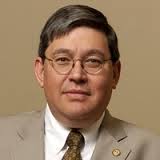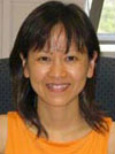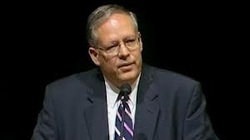FEATURED SPEAKERS

J. Megan Greene
Director, University of Kansas, Center for East Asian Studies (CEAS). KU CEAS is a National Resource Center funded by the U. S. Department of Education.
Associate Professor of History, University of Kansas. (Ph.D.
Washington University in St. Louis, 1997; M.A. University of Chicago, 1988; B.A. Cornell University, 1984).
Professor Greene's field of study is the history of the Republic of China under the KMT both in China and on Taiwan. Specific research interests include nation and state-building projects in the areas of science and the economy, academia, and ideology. She teaches courses on modern China and East Asia. Dr. Greene is the author of The Origins of the Developmental State in Taiwan: Science Policy and the Quest for Modernization (Harvard, 2008), a study of industrial science policy under the KMT, and co-editor with Robert Ash of Taiwan in the 21st Century: Aspects and Limitations of a Development Model (Routledge, 2007). She also collaborated with William Bowman and Frank Chiteji on Imperialism in the Modern World: Sources and Interpretations (Prentice Hall, 2006).
Director, University of Kansas, Center for East Asian Studies (CEAS). KU CEAS is a National Resource Center funded by the U. S. Department of Education.
Associate Professor of History, University of Kansas. (Ph.D.
Washington University in St. Louis, 1997; M.A. University of Chicago, 1988; B.A. Cornell University, 1984).
Professor Greene's field of study is the history of the Republic of China under the KMT both in China and on Taiwan. Specific research interests include nation and state-building projects in the areas of science and the economy, academia, and ideology. She teaches courses on modern China and East Asia. Dr. Greene is the author of The Origins of the Developmental State in Taiwan: Science Policy and the Quest for Modernization (Harvard, 2008), a study of industrial science policy under the KMT, and co-editor with Robert Ash of Taiwan in the 21st Century: Aspects and Limitations of a Development Model (Routledge, 2007). She also collaborated with William Bowman and Frank Chiteji on Imperialism in the Modern World: Sources and Interpretations (Prentice Hall, 2006).

William M. Tsutsui
Dean of Dedman College of Humanities and Sciences at Southern Methodist University, Texas. (Ph.D. in history at Princeton University,1995, MA 1990; Master of Letters in Modern Japanese History from Oxford University’s Corpus Christi College in 1988, B.A. Harvard University, East Asian Studies, 1985.)
Dr. Tsutsui is a specialist in modern Japanese business and economic history whose books examine topics ranging from banking policy to the film icon “Godzilla.” He is the author of Banking Policy in Japan: American Efforts at Reform During the Occupation (Routledge, 1988); Manufacturing Ideology: Scientific Management in Twentieth-Century Japan (Princeton University Press, 1998); and Godzilla on My Mind: Fifty Years of the King of Monsters (Palgrave, 2004). He is the editor of Banking in Japan (Routledge, 1999); A Companion to Japanese History (Blackwell, 2007); and (with Michiko Ito) In Godzilla's Footsteps: Japanese Pop Culture Icons on the Global Stage (Palgrave, 2006).
He received the 1997 Newcomen Society Award for Excellence in Business History Research and Writing, the 2000 John Whitney Hall Prize awarded by the Association of Asian Studies for best book on Japan or Korea published in 1998, and the 2005 William Rockhill Nelson Award for non-fiction.
Tsutsui joined SMU from the University of Kansas, where he served as associate dean for international studies in the College of Arts & Sciences, professor of history and director of the Kansas Consortium for Teaching About Asia in KU’s Center for East Asian Studies. Tsutsui previously served as acting director of the university’s Center for East Asian Studies and executive director of its Confucius Institute. He has been named faculty fellow at KU’s Center for Teaching Excellence, received a William T. Kemper Fellowship for Teaching Excellence in 2001 and won KU’s Steeples Service to Kansas Award in 2001.
Dean of Dedman College of Humanities and Sciences at Southern Methodist University, Texas. (Ph.D. in history at Princeton University,1995, MA 1990; Master of Letters in Modern Japanese History from Oxford University’s Corpus Christi College in 1988, B.A. Harvard University, East Asian Studies, 1985.)
Dr. Tsutsui is a specialist in modern Japanese business and economic history whose books examine topics ranging from banking policy to the film icon “Godzilla.” He is the author of Banking Policy in Japan: American Efforts at Reform During the Occupation (Routledge, 1988); Manufacturing Ideology: Scientific Management in Twentieth-Century Japan (Princeton University Press, 1998); and Godzilla on My Mind: Fifty Years of the King of Monsters (Palgrave, 2004). He is the editor of Banking in Japan (Routledge, 1999); A Companion to Japanese History (Blackwell, 2007); and (with Michiko Ito) In Godzilla's Footsteps: Japanese Pop Culture Icons on the Global Stage (Palgrave, 2006).
He received the 1997 Newcomen Society Award for Excellence in Business History Research and Writing, the 2000 John Whitney Hall Prize awarded by the Association of Asian Studies for best book on Japan or Korea published in 1998, and the 2005 William Rockhill Nelson Award for non-fiction.
Tsutsui joined SMU from the University of Kansas, where he served as associate dean for international studies in the College of Arts & Sciences, professor of history and director of the Kansas Consortium for Teaching About Asia in KU’s Center for East Asian Studies. Tsutsui previously served as acting director of the university’s Center for East Asian Studies and executive director of its Confucius Institute. He has been named faculty fellow at KU’s Center for Teaching Excellence, received a William T. Kemper Fellowship for Teaching Excellence in 2001 and won KU’s Steeples Service to Kansas Award in 2001.

AkikoTakeyama
Assistant Professor: of Anthropology and Women's Studies, University of Kansas
(Ph.D., University of Illinois at Urbana-Champaign, 2008)
Dr. Takeyama’s research interest lies in the commercialization of feelings, emotions, and romantic relationships — what she calls 'affect economy'— at the intersection of postindustrial consumer culture and neoliberal globalization. My project, "The Art of Seduction and Affect Economy: Neoliberal Class Struggle and Gender Politics in a Tokyo Host Club," investigates the interplay among political economy, social inequality, and subjectivity formation in the underground world of Japan's increasingly popular host club scene, where mostly young, working-class men "sell" romance, love, and sometimes sex to indulge their female clients' fantasy. Her teaching uses gender as an analytical lens to critically analyze social structure and lived experiences in various socio-historical contexts, (post)colonial geopolitics, and global capitalism.
Assistant Professor: of Anthropology and Women's Studies, University of Kansas
(Ph.D., University of Illinois at Urbana-Champaign, 2008)
Dr. Takeyama’s research interest lies in the commercialization of feelings, emotions, and romantic relationships — what she calls 'affect economy'— at the intersection of postindustrial consumer culture and neoliberal globalization. My project, "The Art of Seduction and Affect Economy: Neoliberal Class Struggle and Gender Politics in a Tokyo Host Club," investigates the interplay among political economy, social inequality, and subjectivity formation in the underground world of Japan's increasingly popular host club scene, where mostly young, working-class men "sell" romance, love, and sometimes sex to indulge their female clients' fantasy. Her teaching uses gender as an analytical lens to critically analyze social structure and lived experiences in various socio-historical contexts, (post)colonial geopolitics, and global capitalism.

Van C. Gessel
Professor and Former Dean of the BYU College of Humanities at Brigham Young University, Utah. (Ph.D. Columbia University, 1979)
Van Gessel also served as chair of the Department of Asian and Near Eastern Languages at Brigham Young University. He has become renowned for his work as the primary translator for Japanese novelist Endo Shusaku., and translated eight of Endo’s novels from Japanese into English.
Dr. Gessel is also a prominent editor, including The Columbia Anthology of Modern Japanese Literature (Volume 1 published in 2005, Volume 2 in 2007). He has taught as a faculty member at Columbia University, Notre Dame, UC Berkeley, as well as Brigham Young University. From 2005-2008 Gessel served as the president of the Portland, Oregon Mission of The Church of Jesus Christ of Latter-day Saints. Van Gessel has been a regular speaker at JSA Freeman Summer Institutes for the past ten years.
Professor and Former Dean of the BYU College of Humanities at Brigham Young University, Utah. (Ph.D. Columbia University, 1979)
Van Gessel also served as chair of the Department of Asian and Near Eastern Languages at Brigham Young University. He has become renowned for his work as the primary translator for Japanese novelist Endo Shusaku., and translated eight of Endo’s novels from Japanese into English.
Dr. Gessel is also a prominent editor, including The Columbia Anthology of Modern Japanese Literature (Volume 1 published in 2005, Volume 2 in 2007). He has taught as a faculty member at Columbia University, Notre Dame, UC Berkeley, as well as Brigham Young University. From 2005-2008 Gessel served as the president of the Portland, Oregon Mission of The Church of Jesus Christ of Latter-day Saints. Van Gessel has been a regular speaker at JSA Freeman Summer Institutes for the past ten years.

Nancy K. Stalker
Associate Professor, University of Texas at Austin (Ph.D., 2002, Stanford University 2002)
Professor Stalker's scholarship examines the relationship between cultural and religious practice and national identity in modern Japan. Her first book, on new religious movements in the 1920s-30s, is Prophet Motive: Deguchi Onisaburo, Oomoto and the Rise of New Religions in Imperial Japan. Her next monographic project will examine the role of ikebana, the art of flower arrangement, in constructing national and international Japanese identity in the twentieth century, especially focusing on its rapid expansion in postwar Japan from the 1950s-70s. Other research interests include the conception of traditional Japanese cuisine and gender ideology. Her courses include: Introduction to Japan; Modern Japan; History of Japanese Religions; History of Religions of Asia; Religion and Rebellion in Modern East Asia; War and Defeat in Japanese History and Memory; Imperial Japan; and Readings in Modern East Asia. Professor Stalker has won research fellowships from the Fulbright Association; the Japan Foundation, Yale University Council on East Asian Studies, Dartmouth College Humanities Institute, Stanford University Institute of International Studies (Stanford University), A.W. Mellon and Hosei University International Scholars.
Associate Professor, University of Texas at Austin (Ph.D., 2002, Stanford University 2002)
Professor Stalker's scholarship examines the relationship between cultural and religious practice and national identity in modern Japan. Her first book, on new religious movements in the 1920s-30s, is Prophet Motive: Deguchi Onisaburo, Oomoto and the Rise of New Religions in Imperial Japan. Her next monographic project will examine the role of ikebana, the art of flower arrangement, in constructing national and international Japanese identity in the twentieth century, especially focusing on its rapid expansion in postwar Japan from the 1950s-70s. Other research interests include the conception of traditional Japanese cuisine and gender ideology. Her courses include: Introduction to Japan; Modern Japan; History of Japanese Religions; History of Religions of Asia; Religion and Rebellion in Modern East Asia; War and Defeat in Japanese History and Memory; Imperial Japan; and Readings in Modern East Asia. Professor Stalker has won research fellowships from the Fulbright Association; the Japan Foundation, Yale University Council on East Asian Studies, Dartmouth College Humanities Institute, Stanford University Institute of International Studies (Stanford University), A.W. Mellon and Hosei University International Scholars.
